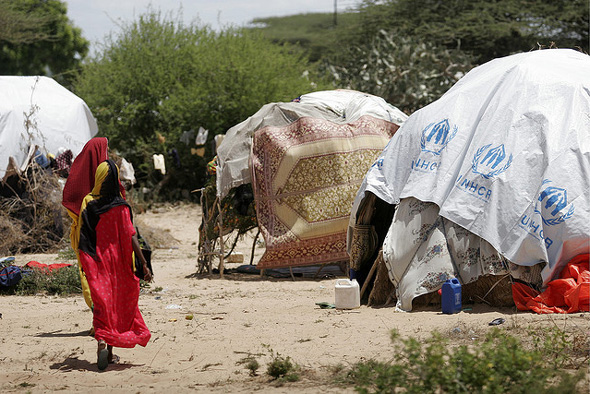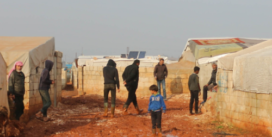- Winter Newsletter, 2025, Issue 14
- STUDENT ESSAY AND THE LIVED EXPERIENCE OF DISPLACEMENT AWARD CONTESTS
- Left out of the Levels Plan: A Call for Accessible Statistics for the Joint Assistance Sponsorship Program to Facilitate Research and Evaluation
- CARFMS2025: Canadian, Regional, and International Responses to Forced Migration
- LESSONS LEARNED FROM THE INDOCHINESE REFUGEE MOVEMENT IN CANADA IN THE 1970s AND 1980s
CARFMS15: Advancing Protection And Fostering Belonging In A Global Era Of The Criminalization Of Migration – Call for Papers

8th Annual Conference of the Canadian Association for Refugee and Forced Migration Studies (CARFMS)
Hosted by the Department of Criminology, Ryerson University
in collaboration with the Ryerson Centre for Immigration and Settlement (RCIS)
In Toronto, Ontario, Canada
13-15 May 2015
***Please note that submissions are now closed***
The United Nations Member States recently acknowledged the need to promote and protect effectively the human rights and fundamental freedoms of all persons, regardless of their migration status. Similarly, there is recognition of the importance of addressing international migration through a comprehensive and balanced approach, recognizing the roles and responsibilities of countries of origin, transit and destination in promoting and protecting the human rights of all migrants (Declaration of the High Level Dialogue on International Migration and Development, 2013). While the international community’s aim to promote a balanced and human-rights-centred approach to migration is laudable, it is also highly challenging to achieve due to the increasing criminalization of migration. Over the past decades, countries of the Global North have resorted to crimi¬nal law measures to deter and punish irregular migrants, including those in need of international protection. They have imposed criminal penalties on forced migrants for entering or staying in their territory in an irregular manner, or using false documents or for unauthorized employment. Detention has not only become increasingly common but pervasive. Transport companies and employers as well as other persons who come into contact with or help forced migrants, such as health professionals, humanitarian workers, landlords, family members and friends have also become the targets of criminal sanctions. Asylum systems have become stricter for refugee claimants arriving in the destination countries with the help of smugglers. These developments fuelled by negative political and popular discourses have significant repercussions for the situation of not only forced migrants whose fundamental rights have been constrained, but also for legal migrants who become tainted by suspicion and face ever stronger selection barriers to entry. This practice of criminalization is counterproductive: it may result in rising levels of discrimination against migrants and xenophobia; it may hamper the implementation of integration and settlement policies; it may discourage forced migrants who are the victims of human trafficking, sexual assault, labour exploitation, abuse by employers or domestic violence and other crimes from coming forward, receive adequate protection and denounce the perpetrators of such crimes; ultimately it may contribute to driving forced migration underground, enhancing the possibilities of exploitation, oppression and infringement to their human dignity.
The 2015 CARFMS Conference will bring together students, instructors, researchers, academics, governmental officials, decision-makers, practitioners (including non-governmental organizations), refugee lawyers and members of community organizations, from diverse disciplinary and regional backgrounds to discuss changes, achievements, challenges and short and long-term options for advancing the protection of migrants and fostering their belonging in their receiving societies. The conference will feature keynote and plenary speeches from leaders in the field and from people with direct experience of forced migration. We invite participants with a wide range of perspectives to explore practical, social, legal, policy-oriented and theoretical questions related to the general theme outlined above. We welcome proposals for individual papers, organized panels and roundtables structured around the following broad subthemes:
1. Advancing Protection in a Global Era of the Criminalization of Migration: Local, National, Regional, Comparative and International Issues and Concerns
This subtheme analyses discourse, norms, procedures and practices regarding immigration and asylum systems and integration policy as well as their effectiveness, consequences and compatibility with domestic and international human rights and refugee protection standards. What are the social, legal, economic and systemic consequences of the criminalization on immigration and asylum system in Canada and abroad? How do we advance the protection of migrants, including temporary migrant workers, irregular migrants, asylum seekers, refugees, internally displaced persons and stateless persons, at local, national, regional and international levels? How can we understand and respond to the differential experiences of migrants due to identity power relations based on gender, age, ability, sexuality and other axes of “difference”? What is the role of international, regional and local actors, institutions and agencies, employers and members of civil society in advancing protection of migrants? How can solidarity and responsibility-sharing mechanisms be promoted and partnerships amongst the relevant stakeholders be strengthened?
2. Fostering Belonging in a Global Era of the Criminalization of Migration: Local, National, Regional, Comparative and International Issues and Concerns
This subtheme explores the strengths and the weaknesses of reception, settlement, and integration policies against the background of the criminalization of migration. How do criminal law measures against forced migrants and those who come into contact with them, such as NGO members and health professionals, affect the reception, settlement and integration of migrants? What are the best practices and strategies in the reception, settlement and integration of migrants? What are the best practices and strategies in tackling acts, manifestations and expressions of racism, discrimination, xenophobia and related intolerance against migrants? What are the roles played by local, national and regional authorities, employers and members of civil society dealing with issues such as health, education, social welfare, employment and law enforcement? How does gender, sex, age, race, nationality or statelessness and other factors, taken individually or collectively, affect reception, settlement and integration?
3. New Approaches, Research Methods and Theories in Advancing Protection and Fostering Belonging
This subtheme solicits research on innovative approaches, theories and methods in the field of forced migration, settlement and integration, developed within traditional disciplines or along interdisciplinary lines. New theoretical, conceptual, methodological issues from diverse critical and institutional perspectives lead to a better understanding of recent developments and challenges in the field of migration, and, ultimately, to more protective and inclusive policies and practices affecting forced migrants in local, national, regional, and international contexts. What are the practical issues and challenges of researching migration, settlement and integration in a global era of the criminalization of migration? How do we do research on these issues? How does our research influence the theoretical foundations of mobility, borders, citizenship and diversity, as well as policies of integration? What are the implications of positioning ourselves as academics, policy makers, displaced persons, advocates, or activists when we are looking into issues of forced migration, protection, belongingness and care?
SUBMISSION OF ABSTRACTS
Please note that submissions are now closed.
For more information, please contact:
Michele Millard
Coordinator, Centre for Refugee Studies
8th Floor, York Research Tower
4700 Keele Street Toronto, ON M3J 1P3
Tel : 416-736-2100
GRATUIT 416-736-2100 ext. 30391
Fax : 416-736-5688
Email : mmillard@yorku.ca
